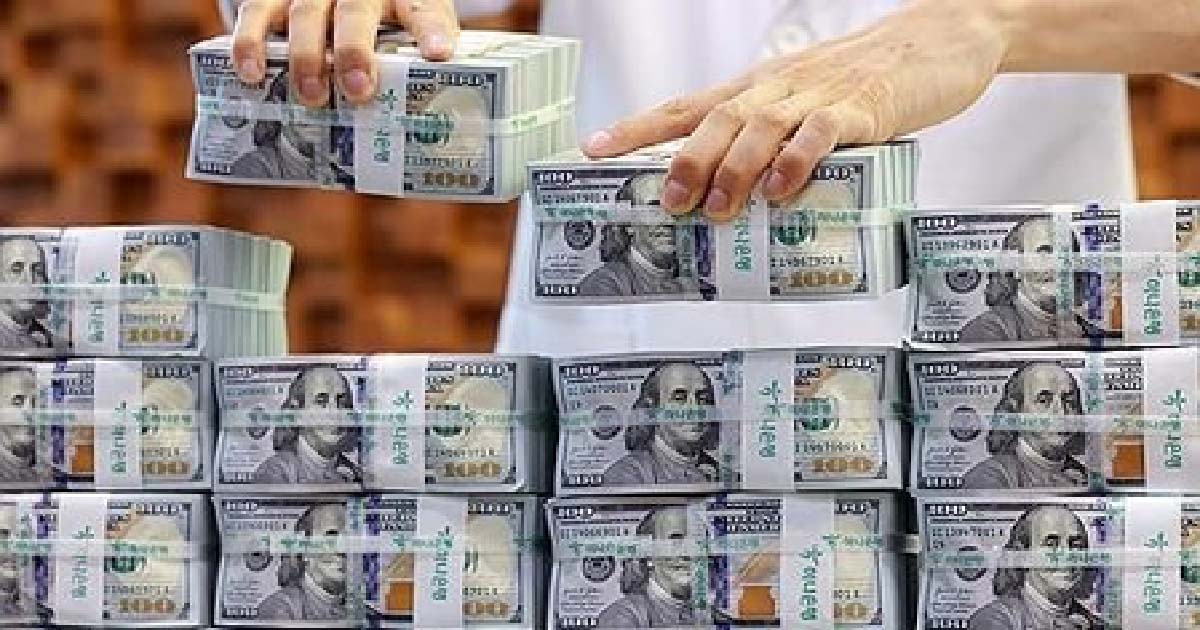Business
India sees surge in deal activity at record $116 billion in 2024

New Delhi, Jan 21: India’s deal-making landscape witnessed a landmark year in 2024, with a record 2,186 deals valued at $116 billion, marking a 33 per cent increase in volumes and 76 per cent surge in values (year-over-year), a report showed on Tuesday.
Driven by India’s status as the fastest-growing G20 economy, with a 7 per cent growth rate driven by robust domestic demand, the country’s deal-making activity reached new heights, defying global economic uncertainty, and demonstrating the resilience of its economy, according to the Grant Thornton Bharat ‘Annual Dealtracker 2024’.
“As we look ahead to 2025, we are optimistic about the prospects for continued robust deal activity, fuelled by government reforms, a stable economy, and a thriving tech ecosystem, making India an attractive destination for investors despite global uncertainties,” said Shanthi Vijetha, Partner, Growth at Grant Thornton Bharat.
The mergers and acquisition landscape witnessed a record-breaking year, with 683 deals valued at $44.1 billion, marking a 37 per cent increase in volumes and a 75 per cent surge in values compared to the previous year.
Domestic consolidation drove growth, with 479 deals amounting to $23.5 billion, a 64 per cent increase in values, led by Indian conglomerates such as Adani Group, Aditya Birla Group and Nazara Technologies.
Outbound M&A also witnessed significant growth, with 121 deals valuing $16.9 billion, driven by two billion-dollar deals, according to the report.
The private equity landscape demonstrated resilience in 2024, with 1,298 deals raising $31 billion, up from 1,046 deals valuing $27.4 billion in 2023.
The year witnessed a 26 per cent rise in high-value deals (estimated at and over $100 million) and two billion-dollar deals.
The initial public offerings (IPO) activity reached unprecedented heights in 2024, defying global economic headwinds, with 86 listings raising a record $21 billion, more than triple the $6.2 billion raised in 2023, said the report.
Business
India in talks with 50 nations on fair trade deals: Piyush Goyal

New Delhi, Nov 28: Commerce and Industry Minister Piyush Goyal said on Friday that India is currently engaged in discussions on fair and balanced trade deals with 14 countries or groups representing nearly 50 nations, including the United States, the European Union, GCC countries, New Zealand, Israel, Eurasia, Canada, South Africa and the Mercosur group.
Addressing the annual general meeting of the Federation of Indian Chambers of Commerce and Industry (FICCI) here, the minister underlined that balanced and equitable trade agreements have already been concluded with Australia, the UAE, Mauritius, the United Kingdom and the four-nation EFTA bloc.
Highlighting broader global developments, the minister said that recent geopolitical and economic challenges have underscored the need for trusted partners and resilient supply chains. He stated that India’s expanding network of free trade agreements (FTAs) and economic partnerships is aimed at building long-term cooperation anchored in fairness, transparency and mutual benefit.
Goyal said that the idea of self-reliance is central in India’s civilisational ethos, recalling references from the Bhagavad Gita and Mahatma Gandhi’s emphasis on Swadeshi. He said that self-reliance has historically guided India’s progress and continues to remain central to the country’s economic strategy. He added that this vision has been strengthened through the focus on Atmanirbhar Bharat under the leadership of Prime Minister Narendra Modi.
Referring to the recent EFTA agreement, the minister noted that the bloc has committed to invest $100 billion in India across innovation and precision manufacturing. He underscored India’s cost competitiveness in research and innovation, stating that high-quality innovation undertaken in India can be achieved at a fraction of the cost compared to Europe or the United States.
The Minister highlighted India’s strengths in innovation and technology, supported by a young demographic, increasing digital adoption and a growing talent pool. He said that India’s large number of STEM graduates and widespread internet access create strong potential in emerging areas such as applied artificial intelligence, automation, robotics and deep-tech innovation.
He noted that the recently announced $12 billion Research, Development and Innovation (RDI) fund, along with ongoing support to startups and deep-tech industries, will further accelerate India’s innovation ecosystem.
Goyal emphasised the importance of strengthening skilling to prepare India’s youth for future opportunities. He said that unlike many developed economies facing ageing populations, India’s youthful demographic is quick to adapt to emerging technologies and has already demonstrated high engagement with digital platforms. He added that this readiness positions India to play a major role in the global technology landscape.
The minister outlined India’s strengths through the ‘PESTLE’ framework, noting that Prime Minister Modi has consistently advanced the vision of self-reliance across sectors. He said that politically, a stable and predictable government committed to “Minimum Government, Maximum Governance” has enhanced investor confidence. In the economic domain, initiatives such as the National Manufacturing Mission and the Rs 25,000 crore Export Promotion Mission are supporting India’s rise towards becoming the world’s third-largest economy.
On the social front, he highlighted that the four Labour Codes ensure better wages and protections, while the Antyodaya approach has supported the fulfilment of basic needs.
In the technology sector, Goyal pointed to initiatives aimed at reducing external dependence, including the Semiconductor Mission (Rs 76,000 crore) and the Rs 7,000 crore programme for permanent magnet production, which strengthen domestic manufacturing and supply chain security. In the legal domain, he referred to ongoing reforms, including progress toward Jan Vishwas 3.0, designed to enhance ease of doing business.
He further noted that the ‘Atomic Energy Bill 2025’ marks a historic shift by opening up the nuclear sector to strengthen energy sovereignty.
The Minister urged FICCI to adopt a mission-driven approach to promoting innovation, deepening research and development, strengthening industry-academia linkages and supporting India’s journey towards becoming a developed nation by 2047.
Business
India projected to log 7 pc GDP growth in 2025: Report

New Delhi, Nov 28: Ahead of India’s Q2 GDP numbers on Friday, Moody’s Ratings said that the country is projected to clock 7 per cent GDP growth in 2025 and 6.4 per cent in 2026 due to domestic growth and economic resilience amid global disruptions.
The country will lead growth among emerging markets and in the Asia Pacific (APAC) region, said the global rating agency. “India will lead growth among emerging markets and across the region, with GDP growing 7 per cent in 2025 and 6.4 per cent in 2026,” according to a note by Moody’s Ratings.
The average GDP growth in APAC is projected to remain steady at 3.4 per cent in 2026, compared to expected growth of 3.6 per cent in 2025.
According to the rating agency, emerging markets will drive GDP growth in the region, with average growth of 5.6 per cent.
In September, Moody’s Ratings affirmed India’s long-term local and foreign-currency issuer ratings and the local-currency senior unsecured rating at Baa3. The global ratings agency has also maintained its outlook for India as stable.
“The rating affirmation and stable outlook reflect our view that India’s prevailing credit strengths, including its large, fast-growing economy, sound external position and stable domestic financing base for ongoing fiscal deficits, will be sustained,” Moody’s said in its note.
The rating agency has said that the US’ imposition of high tariffs on India will have limited negative effects on India’s economic growth in the near term. “However, it may constrain potential growth over the medium to long term by hindering India’s ambitions to develop a higher value-added export manufacturing sector,” said the rating agency.
India’s credit strength is balanced by long-standing weaknesses on the fiscal side which will remain. Strong GDP growth and gradual fiscal consolidation will lead to an only very gradual decline in the government’s high debt burden, and will not be sufficient to materially improve weak debt affordability, especially as recent fiscal measures to reinforce private consumption erode the government’s revenue base, according to the note.
Business
Foreign currency deposits in S. Korea post biggest drop in nearly 2 yrs in Oct

Seoul, Nov 28: Foreign currency deposits in South Korea declined by the most in about two years in October amid increased corporate repayment of foreign-currency borrowings and overseas investments by pension funds, central bank data showed on Friday.
Outstanding foreign currency-denominated deposits held by residents came to $101.83 billion as of end-October, down $5.26 billion from a month earlier, according to data from the Bank of Korea (BOK), Media reports.
It marked the sharpest monthly fall since January 2024, when deposits declined by $5.78 billion, and the second straight month of decrease.
Residents include South Korean citizens, foreigners who have lived in the country for more than six months, and foreign companies. The data excludes interbank deposits.
“The decline was due mainly to companies’ repayment of foreign-currency borrowings, a drop in investor deposits at securities firms and overseas investment executions by pension funds, among other factors,” a BOK official said.
Corporate foreign currency deposits fell $5.5 billion on-month to $86.76 billion, while individual holdings gained $240 million to $15.07 billion.
By currency, U.S. dollar-denominated deposits dropped $5.08 billion to $85.63 billion, and Japanese yen deposits fell $260 million to $8.63 billion.
Euro deposits were nearly unchanged at $5.01 billion, while Chinese yuan deposits increased $60 million to $1.25 billion, the data showed.
Meanwhile, South Korean stocks traded sharply lower late Friday morning as investors dumped tech shares amid lingering uncertainties over artificial intelligence (AI) technology.
The benchmark Korea Composite Stock Price Index (KOSPI) lost 39.81 points, or 1 per cent, to 3,947.1, as of 11:20 a.m.
Most shares traded in negative territory. Market bellwether Samsung Electronics sank 1.93 percent, and SK hynix fell 0.74 per cent.
Top carmaker Hyundai Motor retreated 0.19 percent, and its sister Kia dropped 0.26 per cent.
Leading battery maker LG Energy Solution tumbled 5.94 per cent, and defense giant Hanwha Aerospace declined 2.2 per cent.
The local currency was quoted at 1,465.5 won against the greenback as of 11:20 a.m., down 0.25 won from the previous session’s close.
-

 Crime3 years ago
Crime3 years agoClass 10 student jumps to death in Jaipur
-

 Maharashtra1 year ago
Maharashtra1 year agoMumbai Local Train Update: Central Railway’s New Timetable Comes Into Effect; Check Full List Of Revised Timings & Stations
-

 Maharashtra1 year ago
Maharashtra1 year agoMumbai To Go Toll-Free Tonight! Maharashtra Govt Announces Complete Toll Waiver For Light Motor Vehicles At All 5 Entry Points Of City
-

 Maharashtra1 year ago
Maharashtra1 year agoFalse photo of Imtiaz Jaleel’s rally, exposing the fooling conspiracy
-

 National News1 year ago
National News1 year agoMinistry of Railways rolls out Special Drive 4.0 with focus on digitisation, cleanliness, inclusiveness and grievance redressal
-

 Maharashtra1 year ago
Maharashtra1 year agoMaharashtra Elections 2024: Mumbai Metro & BEST Services Extended Till Midnight On Voting Day
-

 National News1 year ago
National News1 year agoJ&K: 4 Jawans Killed, 28 Injured After Bus Carrying BSF Personnel For Poll Duty Falls Into Gorge In Budgam; Terrifying Visuals Surface
-

 Crime1 year ago
Crime1 year agoBaba Siddique Murder: Mumbai Police Unable To Get Lawrence Bishnoi Custody Due To Home Ministry Order, Says Report












